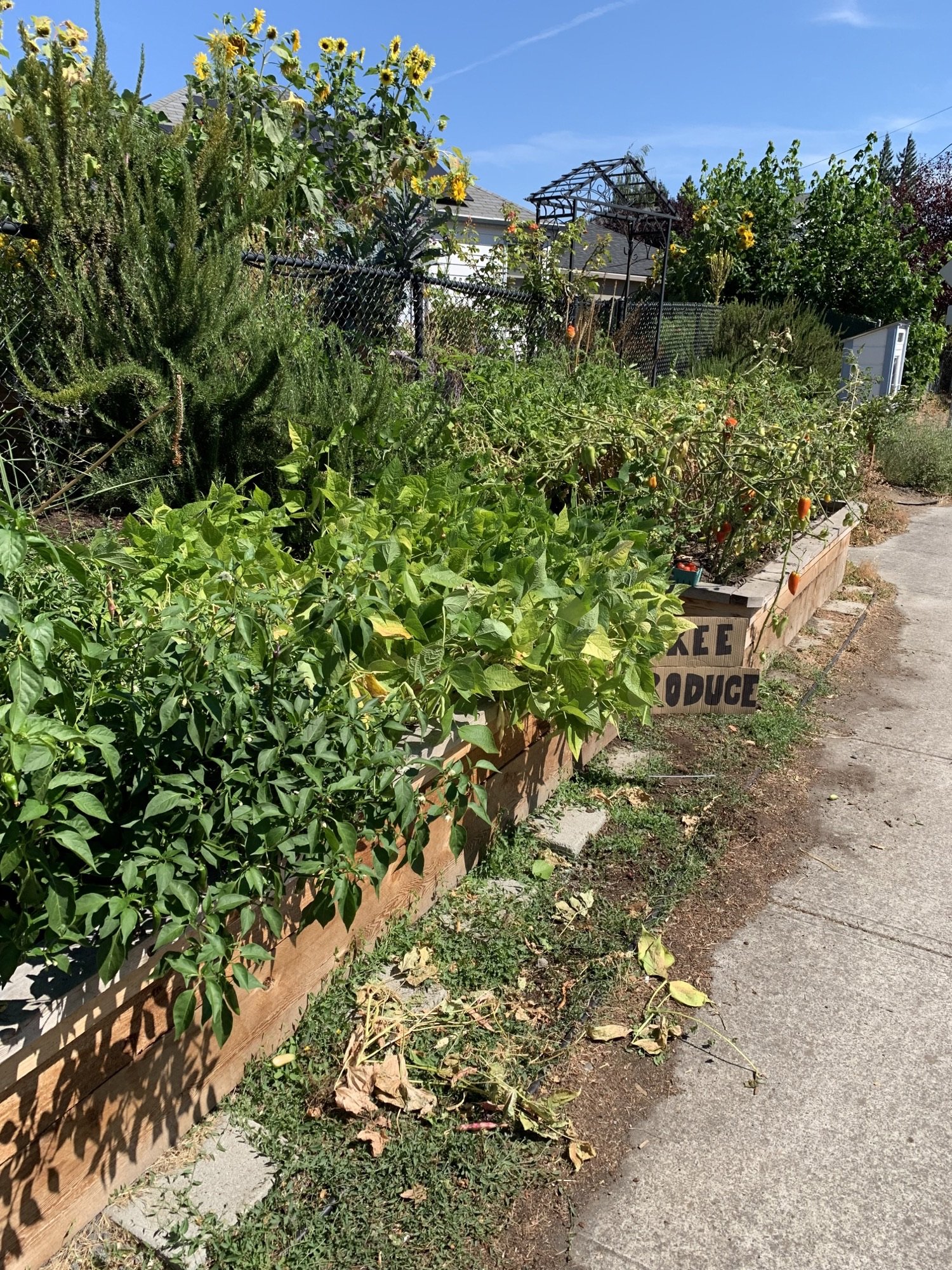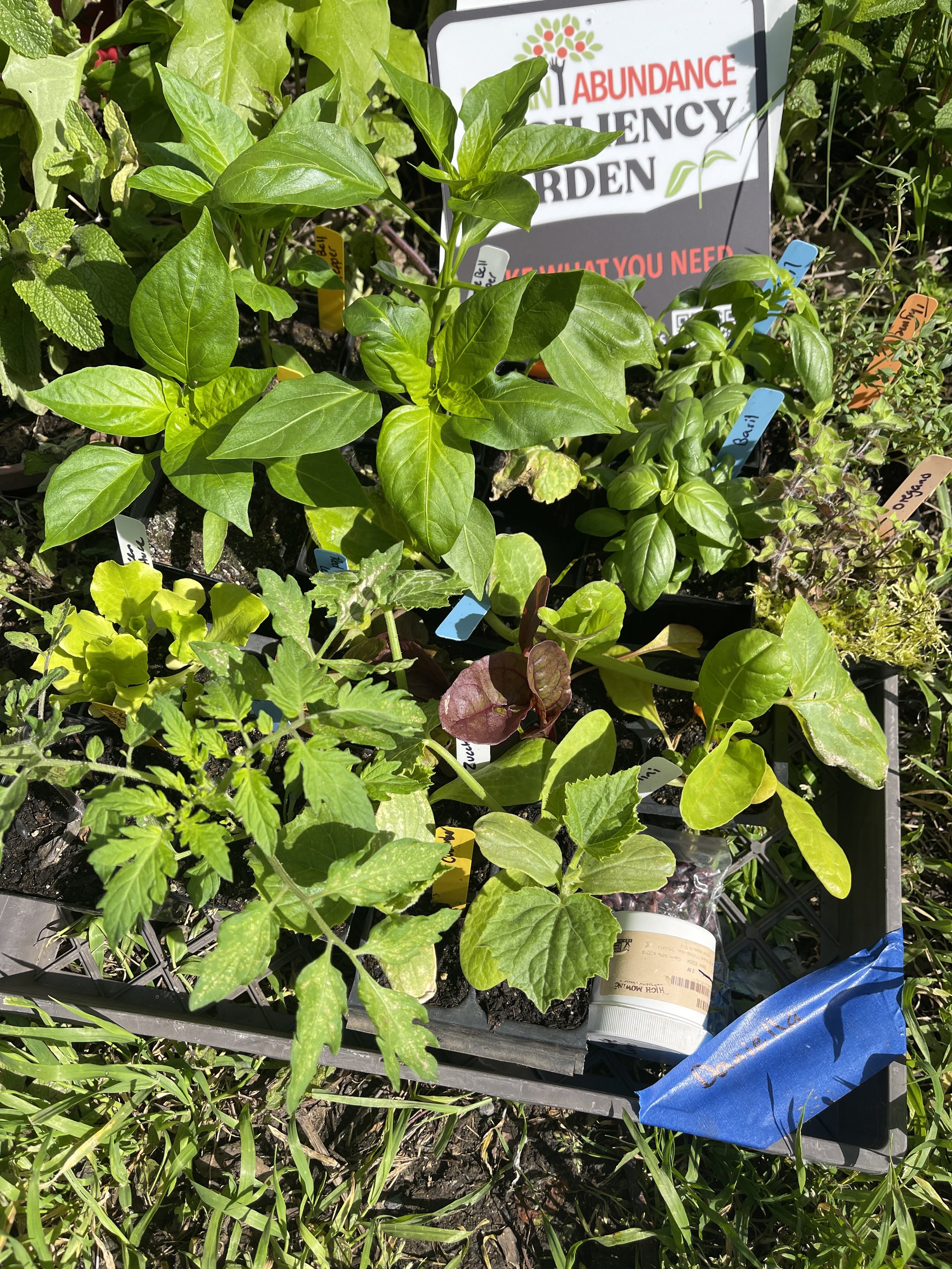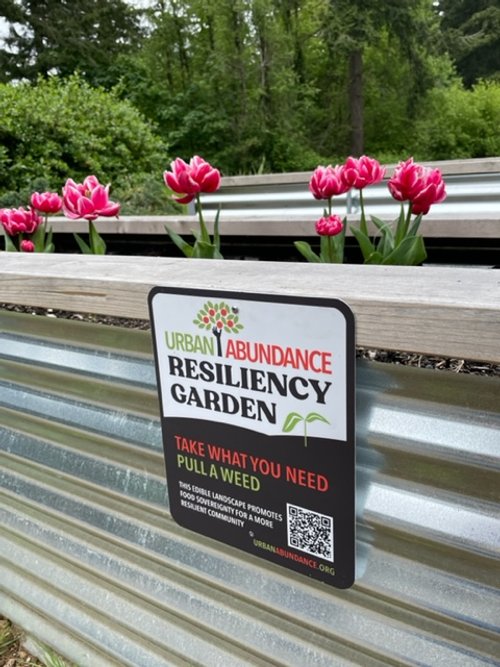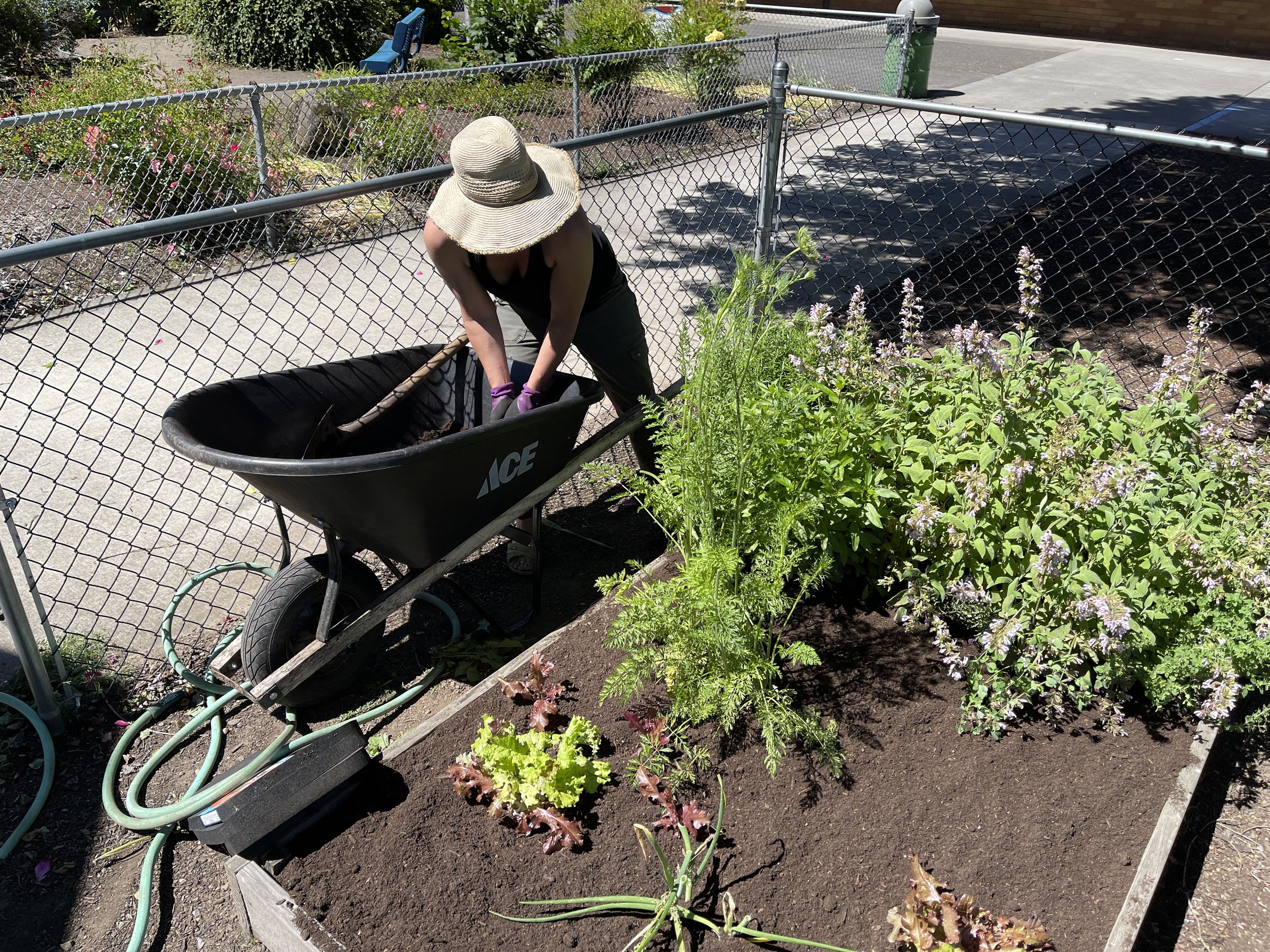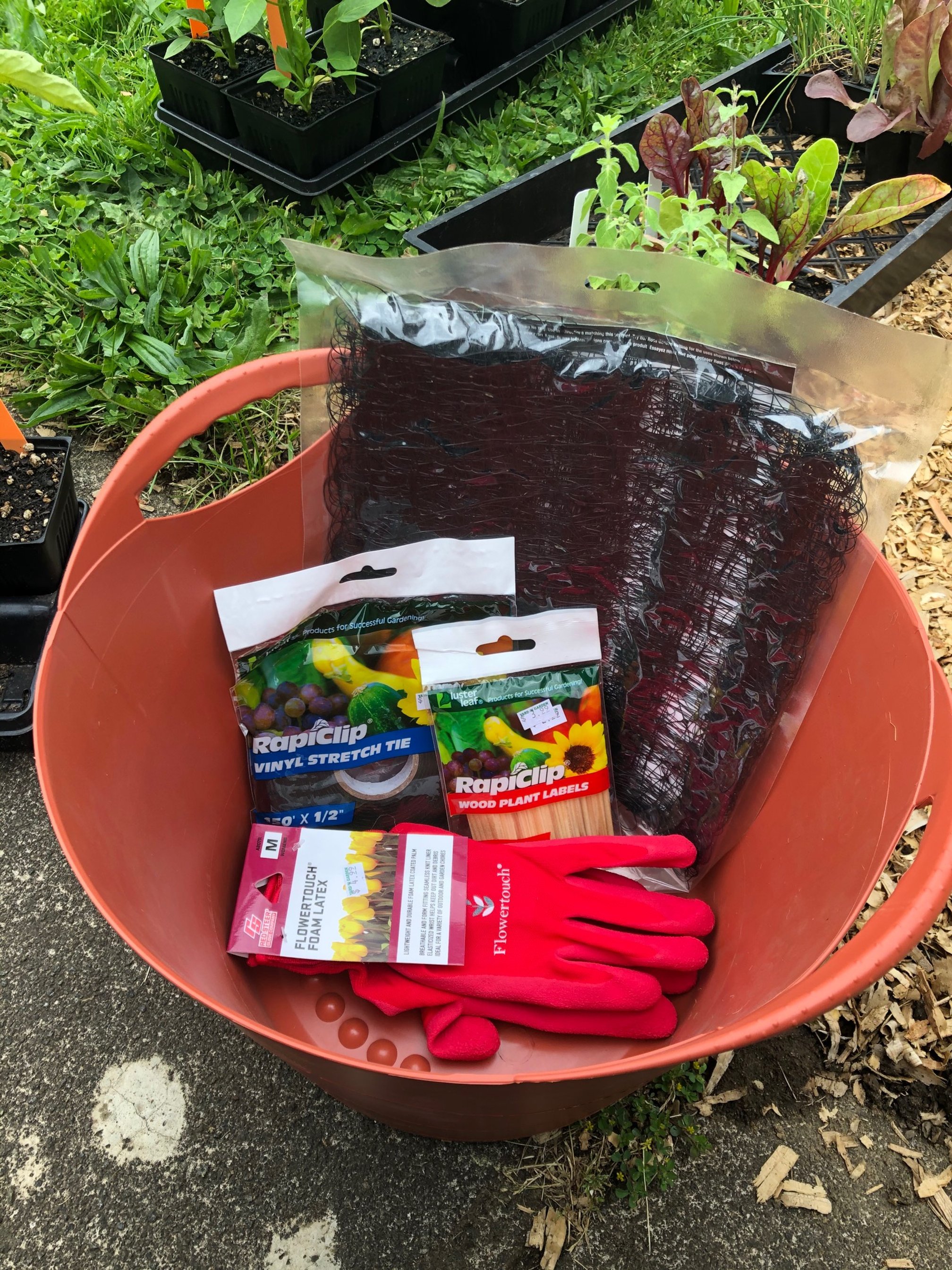Purpose & Goal
To promote food sovereignty, and local control of the food system, by creating publicly accessible food-scapes in our community.
To eliminate some of the barriers in installing a vegetable garden.
To promote a sharing economy and the decommodification of food.
How We Help
-Provide vegetable starts and seeds that are seasonally appropriate for success.
-Provide signage for passerby about the rules and purpose of the garden.
-Provide some supplies, which may include organic fertilizers, hand tools, and trellising.
-Provide resources and education.
How You Can Help
Be a host!
-Maintain and steward the garden.
-Harvest the garden for yourself, and to donate to the food bank.
-Encourage others to harvest.
-Be part of a growing community of garden hosts and advocates for food sovereignty.

Interested in hosting a garden?
Identify a location that is accessible to the public
Prepare your garden bed so it’s ready to be planted (reach out to us if you have questions)
If approved, we will drop off seasonal vegetable starts and supplies for up to 100 square feet of growing space
Plant and maintain your garden!
Hang up your sign & watch the bounty grow for our community
Take photos and share your experiences with the hashtag #UrbanAbundance
-
Welcome! We are so happy you are interested in being an Urban Abundance Resiliency Garden host. Please review the expectations of being a garden host before applying. We will reach out to you within 7 days after you have submitted your application.
Urban Abundance Program's mission is "To engage neighbors in the creation, maintenance, and harvest of edible landscapes that are accessible to everyone."
-
-Plant fruit and vegetable starts in a spot accessible to public
-Maintain fruit and vegetables, and weed by hand
-Will not use pesticides, herbicides, or petroleum-based fertilizers
-Willing to participate in end of summer "self lead garden tour" to display your Resiliency Garden
-Share pictures of your Resiliency Garden throughout the growing season
-Cannot sell any of the produce or plants out of the garden
-You may take and eat from this garden, but you must leave some for others to have from the garden
-
-Provide fruit and vegetable starts
-Provide necessary tools and materials, within capacity
-Provide assistance and support with any garden questions or needs, within capacity
-Provide signage about the garden and rules for passerby to read (i.e. "take a few, weed a few")
*Priority will be given to people and communities commonly under-served, including but not limited to communities/people of color, LGBTQ communities/people, and neuro-diverse communities/people.
-
¡Bienvenidos! Estamos muy contentos de que esté interesado/a en ser un anfitrión de Slow Food Resiliency Garden. Por favor revise las expectativas de ser un anfitrión del jardín antes de aplicar. En 7 dias le notificaremos si es seleccionado/a para albergar un jardín de resiliencia en 7 días.
Programa de Abundancia Urbana es "Involucrar a los vecinos en la creación, mantenimiento y cosecha de frutas y verduras urbanas que sean accesibles para todos".
-
La planta de frutas y verduras comienza en un lugar accesible al público.
-Mantener frutas y verduras y hierba a mano
-No utilizará pesticidas, herbicidas ni fertilizantes a base de petróleo.
-Dispuesto a participar en el "recorrido por el jardín autodirigido" de fin de verano para exhibir su jardín de resiliencia
-Comparta fotos de su jardín de resiliencia durante la temporada de crecimiento
-No se puede vender ninguno de los productos o plantas fuera del jardín.
-Puedes tomar y comer de este jardín, pero debes dejar algunos para que otros se lleven alimentos del jardín
-
-Proveer los comienzos de frutas y verduras.
-Proveer herramientas y materiales necesarios, dentro de la capacidad.
-Proveer asistencia y apoyo con cualquier pregunta o necesidad del jardín, dentro de su capacidad.
-Proveer letreros sobre el jardín y reglas para que los transeúntes lo lean (es decir, "llevese algunos, quite algunas malas hierbas").
* Se dará prioridad a las personas y comunidades comúnmente desatendidas, incluidas, entre otras, las comunidades / personas de color, las comunidades / personas LGBTQ y las comunidades / personas neuro-diversas.

